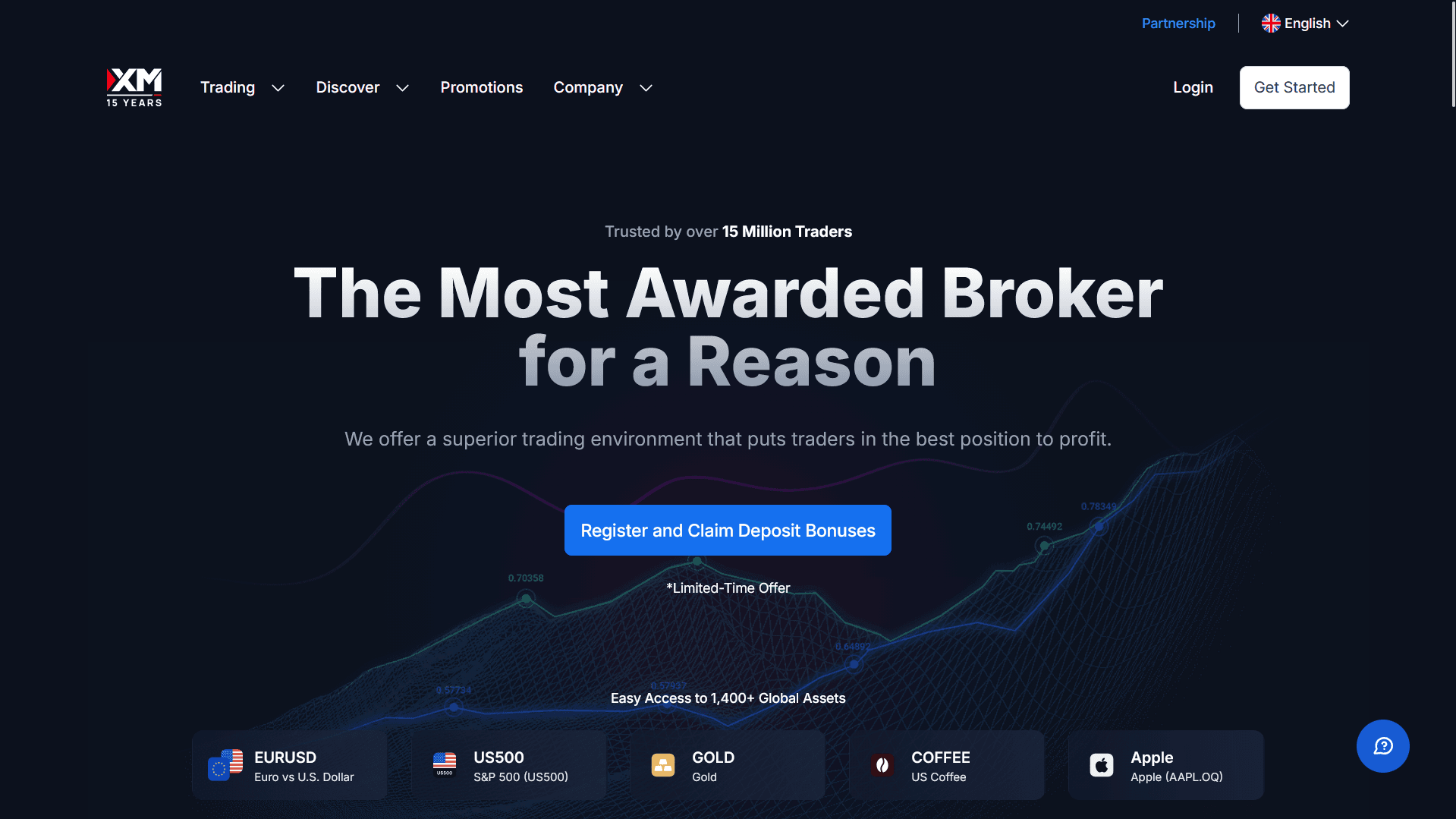1. The Role of Market Makers in Trading
Market makers play a pivotal role in the ecosystem of financial trading, ensuring the smooth operation of markets by providing liquidity at all times. Acting as intermediaries between buyers and sellers, they are constantly ready to buy or sell securities according to market demand. This continuous presence and commitment to trade contributes to market efficiency, as it reduces the likelihood of price gaps and disruptive volatility.
Liquidity provision is a primary function of market makers. They hold a certain number of shares of a particular security in their inventory, and are always prepared to buy or sell at publicly quoted prices. This constant supply and demand facilitate the swift execution of trades, which is particularly crucial for heavily traded markets and volatile assets.
Another crucial aspect is price stabilization. Because market makers are required to buy when there are more sellers than buyers and vice versa, their activity helps to absorb shocks and smooth out price fluctuations. This can prevent extreme market conditions like crashes or bubbles from developing.
In return for their services, market makers profit from the bid-ask spread, which is the difference between the price at which they are willing to buy a security (the bid), and the price at which they are willing to sell it (the ask). This spread compensates them for the risk they undertake. The larger the spread, the higher their potential earnings, but also the greater the risks.
It’s also worth noting that market makers can use advanced algorithmic trading strategies to rapidly send out quotes and execute trades. These high-frequency trading algorithms help them manage their inventory, hedge positions, and maintain a balanced book. They can significantly speed up order execution and reduce slippage, which is beneficial for all market participants.
Despite their essential role, market makers do face some criticism. Some argue that they can manipulate prices to their advantage, especially in less liquid markets. Others point out that their profit-driven nature might conflict with the interests of individual traders or investors.
However, the reality is that without market makers, financial markets would likely be much less liquid, efficient, and stable. Their presence not only ensures the availability of securities for trading but also contributes to price discovery, as their quoted prices reflect the current supply and demand in the market.
Understanding the role of market makers can enhance traders’ ability to navigate the market. Knowing how they operate can help in anticipating possible price movements and identifying trading opportunities. Furthermore, by providing liquidity and stabilizing prices, market makers facilitate a more predictable and secure trading environment.
1.1. Definition of Market Makers
Market makers, as the name implies, are key players in ensuring the fluid functioning of the financial marketplace. Essentially, these entities quote both a buy and a sell price in a financial instrument or commodity held in inventory, with an intention to create a market, and in turn, earn a profit from the bid-offer spread. In other words, they ‘make a market’ by purchasing or selling securities from their own account, essentially acting as wholesalers in the financial markets.
Market makers play a pivotal role in maintaining liquidity and efficiency in the markets. Imagine a scenario where you wish to sell your shares in a company, but there are no immediate buyers. Market makers step in to purchase these shares, providing instant liquidity. This ensures that trade can take place even in the absence of a perfect match between buyers and sellers at any given moment.
Typically, banks and brokerage firms serve as market makers. Some of the market makers in the equity market, for example, include firms like Goldman Sachs, JP Morgan, and Morgan Stanley. In the Forex market, market makers could be large banks or financial institutions like Deutsche Bank, UBS, or Citibank.
The role and operations of a market maker are governed by regulations. Market makers are required to maintain minimum amounts of capital and are subject to rules about the maximum spread they can set between the buy and sell prices. Also, they are obligated to quote the prices of securities in which they make markets and execute orders for the quoted prices promptly.
Despite the benefits, there are also potential drawbacks associated with market makers. For one, the bid-ask spread which is the bread and butter for market makers can be an additional transaction cost for investors. Additionally, since they trade on their own account, there could be potential for conflicts of interest.
Understanding market makers and their role is crucial for anyone entering the trading or investing arena. This knowledge helps in understanding various market dynamics and can assist in making informed decisions.
1.2. Responsibilities of Market Makers
Acting as the vital cogs in the financial trading machine, these entities handle a plethora of duties. Primarily, they are tasked with ensuring that trades are executed promptly and efficiently. They achieve this by constantly buying or selling securities in quantities large enough to meet the demands of traders. This is crucial because it guarantees liquidity, or the ability for an asset to be quickly bought or sold without causing a significant price change.
Furthermore, they have the important task of setting bid and ask prices. The bid price is the highest price a buyer is willing to pay for a security, while the ask price is the lowest price a seller is willing to accept. These prices are determined by market demand and supply, among other factors, and it is the market maker’s responsibility to maintain a fair and orderly market through these prices.
Price stabilization is another important responsibility. They must prevent excessive fluctuations in price by stepping in to buy or sell as necessary. This can involve buying when the market is falling sharply, or selling when it is rising quickly, to keep prices from moving too far in one direction.
A pivotal role they play is that of risk management. Market makers are exposed to significant risks due to the nature of their operation. They must handle vast quantities of securities, and their profits are based on the spread between the bid and ask prices. If prices move unexpectedly, they can experience substantial losses. Hence, effective risk management strategies, including hedging and diversification, are a must to protect themselves.
Providing information to traders and investors is another key duty. This includes real-time pricing information, as well as other relevant data, to assist in decision making. They also provide a certain level of transparency in the market, which contributes to overall market integrity.
Moreover, they also have a responsibility to maintain the fairness of the market. They must abide by regulations and ethical guidelines to prevent market manipulation or unfair practices. This includes avoiding practices such as front-running (trading on information about pending orders before they are executed), or price fixing.
Finally, their role as intermediaries cannot be understated. They act as mediators between buyers and sellers, facilitating trades and ensuring smooth transactions. This role is often invisible to the average trader or investor, but it is vital to the functioning of any financial market. Whether it’s the stock market, foreign exchange market, or any other, market makers are the unsung heroes that keep the wheels of finance turning smoothly.
1.3. Benefits of Market Makers in Trading
Among the essential players in the trading ecosystem, market makers are instrumental in providing liquidity, ensuring efficient markets, and reducing transaction costs. Liquidity is a cornerstone of any trading market, and market makers play a crucial role in enhancing it. They stand ready to buy and sell a particular security at publicly quoted prices, thereby ensuring that traders can execute their orders quickly. This service is especially crucial in situations where there might not be an equal number of buyers and sellers, helping to prevent price manipulation and maintain fairness in the markets.
Besides, market makers are seeds of efficiency in the financial markets. They enable continuous trading by permanently quoting bid (buy) and ask (sell) prices for a particular security. This process ensures that the market does not become stagnant and allows prices to reflect the underlying supply and demand dynamics accurately. By being always ready to transact, market makers reduce the ‘waiting time’ for traders and investors, helping them to transact whenever they want, thereby contributing to a more efficient market.
Another significant benefit of market makers is their role in reducing transaction costs. By quoting both bid and ask prices, they effectively create a market for a security on their own. This activity narrows the spread (difference between the bid price and ask price). A smaller spread implies lower transaction costs, as traders or investors do not have to pay a significant difference between the buying and selling prices of securities. Consequently, this can lead to enhanced trading profits for investors and traders.
Moreover, market makers play an essential role in stabilizing the financial markets. During periods of market turbulence, they step in to provide much-needed liquidity, ensuring that trading activity can continue. This intervention can help to prevent panic selling or buying, thereby contributing to market stability.
Finally, market makers can also aid in price discovery. By continuously quoting bid and ask prices based on their assessment of the security’s fair value, they contribute to the overall price discovery process. This mechanism helps to ensure that security prices reflect their underlying intrinsic values, thereby providing more accurate price signals to traders and investors.
Therefore, while the role of market makers might seem obscure, their contributions to the trading ecosystem are vital. They ensure liquidity, foster efficiency, reduce transaction costs, contribute to market stability, and aid in price discovery, all of which are crucial for the overall health and functioning of financial markets.
2. The Impact of Market Makers on Investors and Traders
In the world of trading and investing, market makers play a crucial role in ensuring liquidity and maintaining efficient markets. Liquidity is a term used in the trading world to signify a market’s ability to handle a significant amount of buying and selling without drastically impacting the price. For example, if an investor wants to buy or sell a large number of shares, market makers ensure that this transaction can occur smoothly without causing a sharp spike or drop in the share price. This is done by market makers buying or selling shares to or from their own inventory to manage such large-scale transactions.
Market makers work by quoting both a buy (bid) and a sell (ask) price for a financial instrument, such as a stock, currency, or commodity. These bid-ask spreads provide the foundation for the transaction costs incurred by traders and investors. The narrower the spread, the less the transaction cost, and the more efficient the market is considered.
For beginner traders and investors, it’s essential to understand the role of market makers in terms of transaction costs and market liquidity. When trading less popular or thinly traded securities, investors may find wider bid-ask spreads due to less competition among market makers, which can increase transaction costs. On the other hand, in active, liquid markets, competition among market makers can lead to narrower spreads, reducing transaction costs and contributing to more efficient price discovery.
The very presence of market makers can be a signal to investors and traders about the relative liquidity of a security. A security with many market makers is likely to have a more liquid market and hence better price discovery and lower transaction costs. Conversely, a security with fewer market makers may have less liquidity and higher transaction costs.
Another vital aspect to consider is the market makers’ risk exposure. Since they commit to buying or selling securities at the quoted prices, market makers are exposed to the risk of price changes. Their profitability is largely dependent on their ability to manage this risk effectively. This risk management can impact the pricing of securities, which in turn affects the returns for traders and investors.
Market makers also help facilitate smoother and quicker transactions, which is particularly important for intraday traders who need to execute trades quickly. By providing a continuous flow of buy and sell orders, market makers ensure that traders can enter and exit positions when they choose, rather than being forced to wait for a buyer or a seller to appear.
Overall, market makers have a profound influence on the trading environment. Their role in maintaining liquidity, managing risk, and facilitating quick transactions shapes the landscape in which traders and investors operate. Understanding this can help traders and investors make more informed decisions and navigate the financial markets more effectively.
2.1. Benefits for Investors and Traders
Understanding the role of a market maker is crucial for investors and traders alike as they form an integral part of financial markets worldwide. Market makers offer numerous benefits to both traders and investors, one of which is liquidity. The immediate ability to buy or sell securities without causing a significant price movement is essential for smooth trading. Market makers, by continuously quoting buy and sell prices, ensure there is always a ready market for the securities, increasing the overall level of liquidity.
Price stability is another key advantage offered by market makers. Through their constant buy and sell operations, they reduce price volatility, helping to maintain a stable market environment. This is particularly beneficial for investors who seek to avoid drastic price fluctuations.
Additionally, market makers also provide transparency in the marketplace. As they are required to display their bid and ask prices publicly, traders and investors have clearer visibility on the market’s direction. This transparency can support more informed decision-making and potentially enhance trading performance.
Immediate trade execution is another significant benefit. When an investor or trader decides to buy or sell a security, they typically want their trade to be executed as quickly as possible. Thanks to market makers, that’s exactly what happens. Since they must maintain a continuous two-sided market, they are often the counterpart to any given trade, ensuring immediate trade execution.
However, it’s crucial to note that while market makers play a vital role in the marketplace and offer numerous benefits, they are not without their risks. It’s necessary to remember that market makers trade on their own account, at their own risk. Therefore, investors and traders must remain vigilant and informed to navigate these complexities effectively.
Finally, let’s not forget the role of market makers in price discovery. Through their continuous trading, they help generate a large volume of trading data that is essential for determining the price of securities. This process of price discovery ensures that prices accurately reflect the current market conditions and expectations, which is crucial for efficient market functioning.
Thus, the relationship between market makers, investors, and traders is multifaceted and dynamic, shaping the landscape of financial markets in profound ways. By understanding the benefits and risks associated with market makers, investors and traders can make more informed decisions- a key to success in the financial markets.
2.2. Limitations and Risks
While Market Makers perform a vital role in maintaining liquidity and efficiency in the financial markets, it is crucial to understand that there are certain limitations and risks associated with their operations. One significant limitation is that the bid-ask spread which market makers provide can be wider than the actual market spread, leading to potential losses for traders and investors. Market Makers, like any other participant in the financial market, are risk-averse entities. They control the risk by setting the bid-ask spread, which may not always be in favor of the trader or investor.
Moreover, during periods of high market volatility or sudden market movements, market makers may not be able to fulfil their role effectively, leading to reduced liquidity or even potential market crashes. It is worth noting that such market conditions can occur without warning, leading to unpredictable losses.
Another aspect to consider is the risk of counterparty default. Market makers are essentially intermediaries; they take the opposite position of trades to maintain market liquidity. However, if a counterparty defaults on a trade, the Market Maker bears the risk and potential loss.
Finally, market makers operate on the principle of profit maximization. As such, their actions and strategies are geared towards achieving their own profitability, which may not align with the interests of the individual trader or investor. This can lead to a conflict of interest, where the actions of the market maker may not necessarily benefit the parties they are supposed to serve.
It’s crucial for traders and investors, especially those new to the financial markets, to understand these limitations and risks. A thorough understanding of the market makers’ role, limitations, and associated risks can help in forming more effective trading and investment strategies.
2.3. How Investors and Traders Can Navigate these Impacts
Understanding the role of a market maker is crucial for both traders and investors. Market makers maintain liquidity, decrease transaction costs, and increase market efficiency. But how can one navigate these impacts in the real world of trading and investing?
For starters, investors and traders should understand that market makers perform their role by buying and selling stocks in response to orders placed by other traders. They stand ready to buy and sell a particular stock on a regular and continuous basis at a publicly quoted price. As a result, they are always ready to either buy or sell, which can be a significant advantage for traders needing to quickly enter or exit positions.
Understanding the bid-ask spread is another important aspect of navigating these impacts. The bid-ask spread represents the difference between the price a buyer is willing to pay for a security and the price a seller is willing to accept. Market makers earn their profits from this spread. Thus, a smaller spread typically indicates high liquidity and lower trading costs, which is generally beneficial for traders and investors.
Investors and traders should also be aware of the potential risks and conflicts associated with market makers. Sometimes market makers can engage in practices that may not be in the best interest of traders, such as artificially increasing the bid-ask spread to earn more profits. While regulations are in place to prevent such practices, it’s important to understand and be vigilant.
Order types can also play a significant role. Market orders are executed immediately at the current market price, and they are often filled by the market maker. On the other hand, limit orders only execute at a specified price or better. These orders may not get filled immediately, but they can provide more control over the execution price. Understanding the differences between these order types can help traders and investors better navigate the impacts of market makers.
Market volatility can also impact market makers and subsequently the traders and investors interacting with them. During high volatility, the spread may increase, which can lead to higher trading costs. Being aware of market conditions and understanding how they can impact the role of market makers can help traders and investors make more informed decisions.
Knowledge is key. The more traders and investors understand about the role and impact of market makers, the better equipped they will be to navigate the financial markets effectively.
3. The Regulation of Market Makers
Market makers, those financial institutions that quote both a buy and a sell price in a financial instrument, play an integral role in the fluidity of the global financial markets. However, this role is not without its constraints. Regulation is a significant part of their operations, and it’s important to understand how it impacts their functionality.
Regulation circles around preventing fraudulent activities and ensuring a fair, transparent trading environment. Market makers are subject to strict regulatory oversight, primarily from two bodies in the United States: The Securities and Exchange Commission (SEC) and the Financial Industry Regulatory Authority (FINRA). These entities impose rules that govern the operations of market makers, which are designed to protect investors and maintain the integrity of the financial markets.
One such rule from the SEC is the “Best Execution” obligation, which requires market makers to provide the most advantageous order execution for their customers considering factors like price, speed, and the likelihood of order execution. This rule ensures that market makers don’t manipulate the prices to their advantage and that customer orders are executed at the best possible prices.
FINRA, on the other hand, has Rule 5320 – the “Prohibition Against Trading Ahead of Customer Orders”, which restricts market makers from trading securities for their accounts at prices equal or superior to unexecuted customer limit orders. This rule is again designed to protect investor interests, ensuring that market makers don’t use their superior knowledge and speed to trade ahead of their customers.
Further, market makers must comply with the Net Capital Rule, requiring them to hold a certain amount of liquid assets. This is to create a buffer against potential losses and to ensure they can meet obligations to their customers, thereby promoting investor confidence in the financial system.
However, regulations aren’t just confined to country borders. The global nature of financial markets means that market makers often have to follow international regulations too. For instance, in the European Union, they are subject to the Markets in Financial Instruments Directive II (MiFID II), which mandates more transparency and provides stronger investor protection.
It’s also noteworthy that market makers often operate under a self-regulatory organization (SRO) within the market infrastructure, such as the Chicago Board Options Exchange (CBOE). These SROs have their own set of rules and conduct that market makers must adhere to, further adding to the layers of regulation.
While these regulations might seem burdensome, they are absolutely essential in maintaining trust in the financial system. They limit the scope for unethical behaviors, protect investor interests, and ensure the overall stability and integrity of the financial markets. Thus, despite the restrictions, these regulations ultimately enable market makers to perform their function more effectively, supporting the smooth operation of the financial markets.
3.1. Regulatory Bodies and Their Role
Understanding the role of regulatory bodies in the financial markets is crucial for any investor or trader. These regulators are significant entities whose main goal is to ensure the integrity, transparency and stability of financial markets. They aim to protect investors, maintain fair, orderly and efficient markets and facilitate capital formation.
The Securities and Exchange Commission (SEC) is one of the primary regulatory bodies in the United States. Its mandate comprises protecting investors; maintaining fair, orderly, and efficient markets; and facilitating capital formation. The SEC seeks to provide a level playing field for all participants by enforcing the statutory laws governing securities trading and penalizing violators.
The Financial Industry Regulatory Authority (FINRA) is another major regulatory body in the U.S. It’s a private corporation that performs self-regulatory functions for brokerage firms and exchange markets. It’s responsible for overseeing more than 4,500 brokerage firms, about 163,000 branch offices, and approximately 629,000 registered securities representatives. Its role includes arbitration and mediation, market regulation by contract for The NASDAQ Stock Market, the American Stock Exchange LLC, and the International Securities Exchange LLC.
Another significant entity is The Commodity Futures Trading Commission (CFTC). It regulates the derivatives markets, which include futures, swaps, and certain types of options. The CFTC’s mission is to promote the integrity, resilience, and vibrancy of the U.S. derivatives markets through sound regulation.
In the European Union, the main regulatory body is The European Securities and Markets Authority (ESMA). ESMA contributes to the supervision of financial services firms with a pan-European reach, either through direct supervision or through the active coordination of national supervisory activity.
Investors and traders should always be aware of the regulations set by these bodies as they directly impact the functioning of the markets and, ultimately, their investments. Complying with these rules could prevent unexpected losses, penalties, and legal troubles. Regulatory bodies also provide educational resources, updates on market conditions, and alerts about potential scams, making them an important resource for every market participant.
3.2. Rules and Regulations Governing Market Makers
Just as there are rules governing the behavior of traders and brokers, there are also stringent regulations in place to control the activities of Market Makers. These individuals or entities play a pivotal role in ensuring the smooth functioning of financial markets. Their primary responsibility is to provide liquid markets by continuously offering to buy and sell securities at publicly quoted prices. Given their importance in facilitating trading and maintaining market efficiency, regulatory bodies have established a comprehensive framework of guidelines and restrictions.
The Financial Industry Regulatory Authority (FINRA), for instance, outlines a set of rules that Market Makers must abide by. One such rule stipulates that Market Makers must be prepared to buy and sell securities at their quoted prices, to maintain liquidity in the market. This prevents a situation where a Market Maker might quote a price but then refuse to honor it when a transaction is initiated.
Another vital FINRA rule is the requirement for Market Makers to report their activities. Just as a public company must regularly report its financials, Market Makers must also disclose their transactions. This transparency aids in maintaining a fair and open market, and helps to prevent unethical practices such as ‘front-running,’ where a broker executes orders on a security for its own account while knowing that its customer is about to enter a large order for the same security.
Furthermore, Market Makers are bound by rules that prohibit them from manipulating the market. This means they cannot artificially inflate or deflate prices for their own advantage. If a Market Maker is suspected of such behavior, regulatory authorities like the Securities and Exchange Commission (SEC) have the power to conduct investigations and impose penalties, including heavy fines and suspension of trading privileges.
Additionally, regulations also specify the minimum amount of capital that a Market Maker must have. This requirement ensures that they have sufficient resources to meet their obligation to buy or sell securities, even in volatile market conditions.
These rules and regulations help to maintain market integrity and protect investors. While Market Makers play a crucial role in maintaining liquidity and facilitating trading, it’s important for beginner traders and investors to understand the regulatory framework that governs their activities. This knowledge can help in making more informed decisions and potentially avoid unnecessary losses.
3.3. Consequences of Violating Market Maker Regulations
In the complex world of trading and investing, market makers operate as intermediaries to facilitate the smooth functioning of financial markets. They play a crucial role by providing liquidity, ensuring market efficiency, and promoting price stability. However, market makers are also subject to stringent regulations and must abide by them to maintain a fair and transparent trading environment.
Violating these regulations can lead to severe consequences. Primarily, market makers might face substantial penalties and fines. Regulatory bodies, like the Securities and Exchange Commission (SEC), have the authority to impose hefty financial sanctions on market makers who flout the rules. In 2014, for instance, several market-making firms had to pay a combined $31 million for violations related to improper handling of “pre-released” American Depositary Receipts.
Beyond monetary repercussions, market makers may also face trading restrictions or even suspension of their market-making privileges. This can seriously hamper their ability to operate and potentially lead to significant loss of business. In some cases, market makers may be forced to halt their operations temporarily or even permanently.
Another major consequence is the potential damage to their reputation. Regulatory violations can lead to a loss of trust among clients and the wider trading community. Once a market maker’s integrity is questioned, it can take a long time to rebuild its reputation, which can severely impact its business in the long run.
Also, market makers might face legal charges and lawsuits, especially in cases of fraudulent activities. If found guilty, they could face imprisonment, along with the other penalties.
In addition to these direct consequences, the violation of market maker regulations can also have broader implications for the overall stability of financial markets. Such violations can distort prices, impair liquidity, and undermine investor confidence. This, in turn, can lead to market volatility and even systemic risks, threatening the wellbeing of the wider economy.
It’s important to underscore that the consequences of violating market maker regulations extend beyond penal actions from regulatory bodies. The social costs, including loss of reputation and potential market instability, can be far more damaging. The stringent regulations and severe penalties exist for a reason – they are designed to protect investors, ensure fair trading practices, and maintain the overall health of the financial markets.












